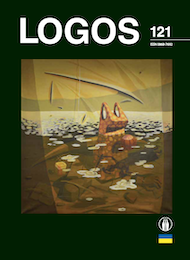Neblėstantis Kanto aktualumas bei lietuvių ir lenkų konfliktas: istorinio sambūvio principai
Kant’s Enduring Relevance and the Lithuanian-Polish Conflict: Principles of Historical Coexistence
Author(s): Eugenijus ŽmuidaSubject(s): Social Philosophy, Political history, Social history, Peace and Conflict Studies
Published by: Visuomeninė organizacija »LOGOS«
Keywords: Kant; Herder; Rousseau; the social contract; the principles of the coexistence of nations;
Summary/Abstract: This year marks the 300th anniversary of Kant’s birth. Immanuel Kant is relevant to Lithuanian culture in more ways than one. In his 1795 political treatise “Towards Perpetual Peace”, the German philosopher put forward a radical hypothesis, arguing that the course of history is not dictated and determined by the desire for peace and tranquillity, but by aggression in the form of constant wars. According to Kant, the peaceful coexistence of peoples can be created and maintained by reason, i.e. by controlling human nature. The article analyses how Lithuanian and Polish nationalism were inspired by the writings of the European Enlightenment, how their conflict can be seen in Kant’s vision of the future of the world, and how this vision is relevant to today’s political situation, influenced by corrupt liberalism.
Journal: LOGOS - A Journal of Religion, Philosophy, Comparative Cultural Studies and Art
- Issue Year: 2024
- Issue No: 121
- Page Range: 28-35
- Page Count: 8
- Language: Lithuanian

